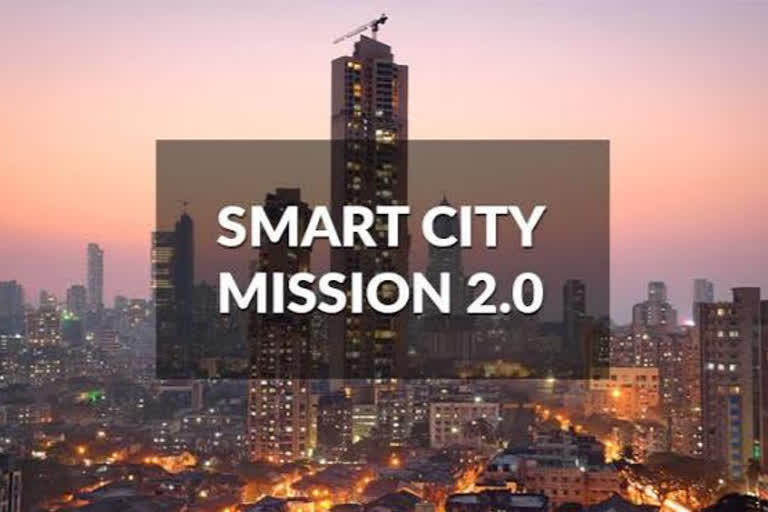New Delhi: Even as Economic Survey of India 2020 hailed achievements in India's Housing and Urban sector, experts in this field have opined that the sector still needs to do a lot for inclusive urban growth.
Flagship schemes of the Union Ministry of Housing and Urban Affairs (MoHUA) like Pradhan Mantri Awas Yojana (PMAY-Urban), Smart City Mission have been praised in the survey.
MoHUA's other flagship scheme Swachh Bharat Mission (SBM-Urban) has also helped India to get the Open Defecation Free (ODF) status.
Statistics of the Ministry of Housing and Urban Affairs said that SBM-U has achieved its target of creating Urban India-ODF.
Urban areas of 35 states and union territories have become ODF. In all, 4320 cities (out of 4378) have declared themselves ODF, of which, 4167 cities have been certified through third-party verification. This has been achieved by the construction of nearly 65.81 individual households toilets against mission target of 59 lakhs and 5.89 lakhs seats of community and public toilets against mission target of 5.08 lakhs seats under the mission.
Dr Renu Khosla, Director, Centre for Urban and Regional Excellence (CURE), however, said that the approach of the ministry should be to build individual sanitation facility.
Read: Coronavirus outbreak: Air India flight evacuating 324 Indians from China's Wuhan land in Delhi
"In urban areas government has been concentrating on community sanitation...what we need is a proper toilet in every household of the urban poor," said Dr Khosla who is an expert on housing and urban affairs sector.
Significantly, as far as India's Smart City Mission is concerned, the MoHUA has rolled out smart city mission to 100 cities in a phased manner, with the ministry is all set to expand the smart city mission to all 4,000 cities in the country in 2020.
This mission was launched by Prime Minister Narendra Modi in 2015.
The mission is expected to expand housing for all, build better infrastructure and develop open spaces among other things.
Officials in the housing ministry said that the ministry is also getting feedbacks and interest from foreign organisations for their involvement in smart city mission.
Ironically, the centre's plan to make 100 smart cities has been facing several challenges including long term funding, lack of private participation and capacity building.
The economic survey as presented in the Parliament today, however, said that all 100 cities under the mission have incorporated SPVs, City Level Advisory Forums (CLAFs) and appointed Project Management Consultants (PMC).
Read: Assam: See how these roads are managing plastic waste
Since the launch of the mission, 5,151 projects worth more than Rs 2 lakh crore are at various stages of implementation in 100 cities.
"Smart City Mission was a good move. But at the same time people should be made smarter...smart city is basically depends on the smart and digital system...people should capable to use that system," said Dr Khosla.
It may be mentioned here that in the July 2019 union budget, MoHUA has been sanctioned a budget outlay over Rs 48,000 crore, an increase over 12 per cent from 42,965 crores in 2018.
The Ministry also highlighted its another important mission named Pradhan Mantri Awas Yojana-urban programme.
A per records, 1.03 crore houses have been built across India for the needy people.
The ministry has set 2022 as the deadline for providing pucca house to every household in India.
To give a boost to the PMAY (U), the union cabinet has approved National Urban Housing Funds (NUHF) to mobilise resources through Extra Budgetary Resources to then a time of Rs 60,000 crore.
"Government should look into the fact that the delivery of constructed house should be on time...importance should also be given on the location of such houses," said Dr Khosla adding "if a house is constructed in fringe areas, but people need to come in cities for job purpose, then problem arise."
The expert, however, emphasised on proper communication facilities.
Also Read: PM 24-karat gold, don't doubt his intention: Rajnath



